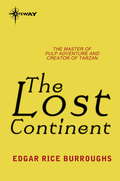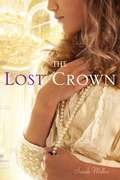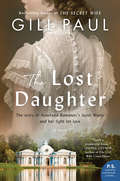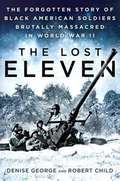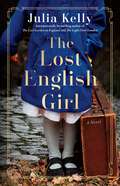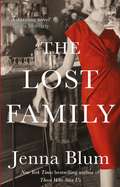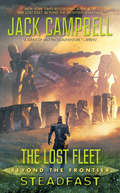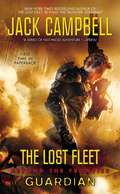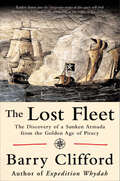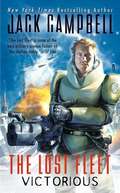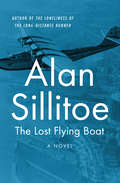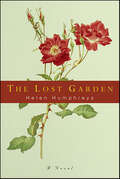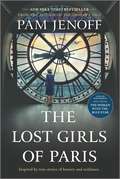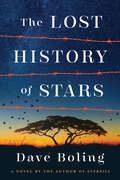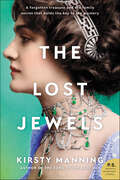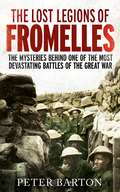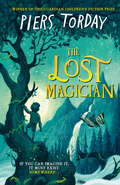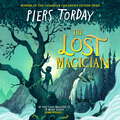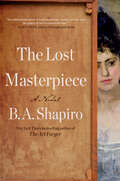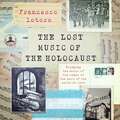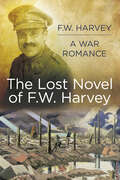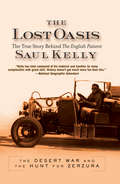- Table View
- List View
The Lost Continent: The Best Book For Readers (annotated) By Edgar Rice Burroughs
by Edgar Rice BurroughsWar had devastated the entire eastern hemisphere. For two hundred years America had lived in civilized isolation, while Europe had lapsed into legend.Jefferson Turck was the first man who dared recross the 30th meridian, and like Columbus centuries before him, he landed in a New World. For Europe had become the jungle home of savage beasts and her people had banded together in bloodthirsty tribes led by barbarian queens.
The Lost Crown
by Sarah MillerOlga, Tatiana, Maria, and Anastasia. Like the fingers on a hand--first headstrong Olga; thenTatiana, the tallest; Maria the most hopeful for a ring; and Anastasia, the smallest. These are the daughters of Tsar Nicholas II, grand duchesses living a life steeped in tradition abd priviledge. They are each on the brink of starting their own lives, at the mercy of royal matchmakers. The summer of 1914 is that precious last wink of time when they can still be sisters together--sisters that link arms and laugh, sisters that share their dreams and worries, and flirt with the officers of their imperial yacht.But in a gunshot the future changes -- for these sisters and for Russia. As World War I ignites across Europe, political unrest sweeps Russia. First dissent, then disorder, mutiny -- and revolution. For Olga, Tatiana, Maria and Anastasia, the end of their girlhood together is colliding with the end of more than they ever imagined. At the same time hopeful and hopeless, naïve and wise, the voices of these sisters become a chorus singing the final song of Imperial Russia. Impeccably researched and utterly fascinating, this novel by acclaimed author Sarah Miller recounts the final days of Imperial Russia with lyricism, criticism and true compassion.
The Lost Crown
by Sarah MillerOlga, Tatiana, Maria, and Anastasia. Like the fingers on a hand--first headstrong Olga; thenTatiana, the tallest; Maria the most hopeful for a ring; and Anastasia, the smallest. These are the daughters of Tsar Nicholas II, grand duchesses living a life steeped in tradition abd priviledge. They are each on the brink of starting their own lives, at the mercy of royal matchmakers. The summer of 1914 is that precious last wink of time when they can still be sisters together--sisters that link arms and laugh, sisters that share their dreams and worries, and flirt with the officers of their imperial yacht.But in a gunshot the future changes -- for these sisters and for Russia. As World War I ignites across Europe, political unrest sweeps Russia. First dissent, then disorder, mutiny -- and revolution. For Olga, Tatiana, Maria and Anastasia, the end of their girlhood together is colliding with the end of more than they ever imagined. At the same time hopeful and hopeless, naïve and wise, the voices of these sisters become a chorus singing the final song of Imperial Russia. Impeccably researched and utterly fascinating, this novel by acclaimed author Sarah Miller recounts the final days of Imperial Russia with lyricism, criticism and true compassion.
The Lost Daughter: A Novel
by Gill PaulIf you loved I Am Anastasia by Ariel Lawhon you won't want to miss this novel about her sister, Grand Duchess Maria. What really happened to this lost Romanov daughter? A new novel perfect for anyone curious about Anastasia, Maria, and the other lost Romanov daughters, by the author of The Secret Wife. 1918: Pretty, vivacious Grand Duchess Maria Romanov, the nineteen-year-old daughter of the fallen Tsar Nicholas II, lives with her family in suffocating isolation, a far cry from their once-glittering royal household. Her days are a combination of endless boredom and paralyzing fear; her only respite are clandestine flirtations with a few of the guards imprisoning the family—never realizing her innocent actions could mean the difference between life and death1973: When Val Doyle hears her father’s end-of-life confession, “I didn’t want to kill her,” she’s stunned. So, she begins a search for the truth—about his words and her past. The clues she discovers are baffling—a jewel-encrusted box that won’t open and a camera with its film intact. What she finds out pulls Val into one of the world’s greatest mysteries—what truly happened to the Grand Duchess Maria?
The Lost Eleven: The Forgotten Story of Black American Soldiers Brutally Massacred in World War II
by Denise George Robert ChildNearly forgotten by history, this is the story of the Wereth Eleven, African-American soldiers who fought courageously for freedom in WWII—only to be ruthlessly executed by Nazi troops during the Battle of the Bulge. Their story was almost forgotten by history. Now known as the Wereth Eleven, these brave African-American soldiers left their homes to join the Allied effort on the front lines of WWII. As members of the 333rd Field Artillery Battalion, they provided crucial fire support at the Siege of Bastogne. Among the few who managed to escape the Nazi’s devastating Ardennes Offensive, they found refuge in the small village of Wereth, Belgium. A farmer and supporter of the Allies took the exhausted and half-starved men into his home. When Nazi authorities learned of their whereabouts, they did not take the soldiers prisoner, but subjected them to torture and execution in a nearby field. Despite their bravery and sacrifice, these eleven soldiers were omitted from the final Congressional War Crimes report of 1949. For seventy years, their files—marked secret—gathered dust in the National Archive. But in 1994, at the site of their execution, a memorial was dedicated to the Wereth Eleven and all African-American soldiers who fought in Europe. Drawing on firsthand interviews with family members and fellow soldiers, The Lost Eleven tells the complete story of these nearly forgotten soldiers, their valor in battle and their tragic end. INCLUDES PHOTOSFrom the Hardcover edition.
The Lost English Girl
by Julia KellyCombining &“fast-paced historical fiction with a hint of suspense&” (Booklist), this epic saga from Julia Kelly explores love, motherhood, and betrayal set against World War II.Liverpool, 1935: Raised in a strict Catholic family, Viv Byrne knows what&’s expected of her: marry a Catholic man from her working-class neighborhood and have his children. However, when she finds herself pregnant after a fling with Joshua Levinson, a Jewish man with dreams of becoming a famous jazz musician, Viv knows that a swift wedding is the only answer. Her only solace is that marrying Joshua will mean escaping her strict mother&’s scrutiny. But when Joshua makes a life-changing choice on their wedding day, Viv is forced once again into the arms of her disapproving family. Five years later and on the eve of World War II, Viv is faced with the impossible choice to evacuate her young daughter, Maggie, to the countryside. In New York City, Joshua gives up his failing musical career to serve in the Royal Air Force and try to piece together his feelings about the family he left behind. However, tragedy strikes when Viv learns that the countryside safe haven she sent her daughter to wasn&’t immune from the horrors of war. It is only years later, with Joshua&’s help, that Viv learns the secrets of their shared past and what it will take to put a family back together again. Telling the harrowing story of England&’s many evacuated children, Kelly&’s The Lost English Girl &“will hook readers from the first page&” (Publishers Weekly, starred review).
The Lost Family
by Jenna Blum'A dazzling novel of great compassion' Laura Moriarty'An extraordinary read, the kind of book that makes you sob and smile' Tatiana de Rosnay'Blum plumbs the depths of loss and love in this exquisite page-turner' PeopleIn 1960s Manhattan, patrons flock to Masha's to savor its brisket Wellington and impeccable service, and to admire its dashing owner and head chef, Peter Rashkin. With his movie-star good looks and tragic past, Peter, a survivor of Auschwitz, is the most eligible bachelor in town. But he has resigned himself to a solitary life. Running Masha's consumes him, as does the terrible guilt of having survived the horrors of a Nazi death camp while his wife, Masha - the restaurant's namesake - and two young daughters perished.Then exquisitely beautiful June Bouquet, an up-and-coming model, appears at the restaurant, piercing Peter's guard. Though she is twenty years his junior, the two begin a passionate, whirlwind courtship. When June unexpectedly becomes pregnant, Peter proposes, believing that beginning a new family with the woman he loves will allow him to let go of the atrocities of the past, even though he cannot forget all that he has lost. But over the next twenty years, the indelible sadness of those memories will overshadow Peter, his new wife, June, and their daughter, Elsbeth, transforming them in heartbreaking and unexpected ways.The Lost Family is a charming, funny, and elegantly bittersweet study of the repercussions of loss and love that spans a generation, from the 1960s to the 1980s. It is a vivid portrait of marriage, family, and the haunting grief of World War II.
The Lost Fleet: Beyond The Frontier - Steadfast (The Lost Fleet: Beyond the Frontier #10)
by Jack CampbellNew York Times bestselling author Jack Campbell's action-packed Lost Fleet series has propelled readers from deep space to the very edge of their seats. <P><P>Now Admiral John "Black Jack" Geary embarks on a thrilling new adventure to defend the Alliance and safeguard the future. Geary and the crew of the Dauntless have managed to safely escort important alien representatives to Earth. But before they can make tracks for home, two of Geary's key lieutenants vanish. The search for his missing men leads Geary on a far-flung chase, ultimately ending at the one spot in space from which all humans have been banned: the moon Europa. Any ship that lands there must stay or be destroyed--leaving Geary to face the most profound moral dilemma of his life. To make matters worse, strains on the Alliance are growing as the Syndics continue to meddle. Geary is ordered to take a small force to the border of Syndic space. But what he finds there is a danger much greater than anyone expected: a mysterious threat that could finally force the Alliance to its knees. As Geary spearheads a desperate battle to protect the Alliance against a shrewd and powerful enemy, he's left with just one question: Who are they?
The Lost Fleet: Guardian
by Jack CampbellAdmiral Geary’s First Fleet of the Alliance has survived the journey deep into unexplored interstellar space, a voyage that led to the discovery of new alien species, including a new enemy and a possible ally. Now Geary’s mission is to ensure the safety of the Midway Star System, which has revolted against the Syndicate Worlds empire—an empire that is on the brink of collapse. To complicate matters further, Geary also needs to return safely to Alliance space not only with representatives of the Dancers, an alien species, but also with Invincible, a captured warship that could possibly be the most valuable object in human history. Despite the peace treaty that Geary must adhere to at all costs, the Syndicate Worlds regime threatens to make the fleet’s journey back grueling and perilous. And even if Geary escorts Invincible and the Dancers’ representatives home unharmed, the Syndics’ attempts to spread dissent and political unrest may have already sown the seeds of the Alliance’s destruction...
The Lost Fleet: The Discovery of a Sunken Armada from the Golden Age of Piracy
by Barry CliffordAn explorer recounts historic events surrounding the sinking of a seventeenth-century, eighteen-ship French fleet, along with modern-day efforts to find it. On January 2, 1678, a fleet of French ships sank off the Venezuelan coast. This proved disastrous for French naval power in the region, and sparked the rise of a golden age of piracy. Tracing the lives of fabled pirates like the Chevalier de Grammont, Nikolaas Van Hoorn, Thomas Paine, and Jean Comte d&’Estrées, The Lost Fleet portrays a dark age, when the outcasts of European society formed a democracy of buccaneers, settling on a string of islands off the African coast. From there, the pirates haunted the world&’s oceans, wreaking havoc on the settlements along the Spanish mainland and—often enlisted by French and English governments—sacking ships, ports, and coastal towns. More than three hundred years later, writer, explorer, and deep-sea diver Barry Clifford follows the pirates&’ destructive wake back to Venezuela. With the help of a lost map, drawn by the captain of the lost French fleet, Clifford locates the site of the disaster and wreckage of the once-mighty armada.
The Lost Fleet: Victorious (The Lost Fleet #6)
by Jack CampbellThe Lost Fleet continues its perilous journey home, in this sixth book of the series. The most recent battle has been won, and it seems as though conflict may be a thing of the past for The Lost Fleet's crew. But an alien race, until now unknown to anyone, except the fleet's enemies begins to try to stake claims on space territory.
The Lost Flying Boat: A Novel
by Alan SillitoeA post-WWII adventure from the bestselling author of The Loneliness of the Long-Distance Runner. A top-secret mission sends a crew of Royal Air Force veterans from South Africa to the subarctic Kerguelen Islands in this suspense-packed tale of lawlessness, piracy, obsession, and greed. At the helm of the Aldebaran, a huge flying boat, sits the monomaniacal Captain Bennett, a man hell-bent on unearthing a treasure buried by the Germans in the final days of World War II. And on the seaplane&’s radio is the young wireless operator Adcock, a man who listens to everything and tries to make sense of it all. The rest of the ex-soldiers on board seek either riches or adventure—but all are fleeing the frustrations and disappointments of their postwar lives. As the voyage takes dangerous turns toward natural and manmade threats, it becomes clear that Captain Bennett is keeping secrets and the Aldebaran is not alone on her quest. Adcock&’s morals are soon put to the test, machine guns are mounted on the flying boat&’s turrets, and the thirst for gold may cost the crew their lives. Classic kitchen sink realism meets high-flying adventure in this British thriller that goes beyond action and into the depths of human values and motivations in a war-damaged world. Drawing upon Alan Sillitoe&’s own wartime experiences as a wireless operator, The Lost Flying Boat is full of aerial heroics, coded messages, shattered dreams, and the will to persevere.
The Lost Garden: A Novel
by Helen HumphreysLeaving London to grow food for the war effort, Gwen discovers a mysterious lost garden and the story of a love that becomes her own.This word-perfect, heartbreaking novel is set in early 1941 in Britain when the war seems endless and, perhaps, hopeless. London is on fire from the Blitz, and a young woman gardener named Gwen Davis flees from the burning city for the Devon countryside. She has volunteered for the Land Army, and is to be in charge of a group of young girls who will be trained to plant food crops on an old country estate where the gardens have fallen into ruin. Also on the estate, waiting to be posted, is a regiment of Canadian soldiers. For three months, the young women and men will form attachments, living in a temporary rural escape. No one will be more changed by the stay than Gwen. She will inspire the girls to restore the estate gardens, fall in love with a soldier, find her first deep friendship, and bring a lost garden, created for a great love, back to life. While doing so, she will finally come to know herself and a life worth living.
The Lost Girls of Paris: A Novel (Hq Fiction Ebook Ser.)
by Pam JenoffThe New York Times bestseller—for fans of All the Light We Cannot See and The Tattooist of Auschwitz!Three women. One daring mission.1946. One morning while passing through Grand Central Terminal, Grace Healey finds an abandoned suitcase tucked beneath a bench. Inside is a dozen photographs—each of a different woman. Grace soon learns that the suitcase belonged to Eleanor Trigg, leader of a network of female secret agents deployed out of London during the war. Twelve of these women were sent to Occupied Europe as couriers and radio operators to aid the resistance, but they never returned home.Setting out to learn the truth behind the women in the photographs, Grace finds herself drawn to a young mother turned agent named Marie, whose mission overseas reveals a remarkable story of friendship, valor and betrayal. In this riveting story inspired by true events, Pam Jenoff weaves a tale of courage, sisterhood and the great strength of women to survive in the hardest of circumstances.Don&’t miss Pam Jenoff&’s new novel, Code Name Sapphire, a riveting tale of bravery and resistance during World War II.Read these other sweeping epics from New York Times bestselling author Pam Jenoff: The Woman with the Blue Star The Orphan&’s Tale The Ambassador&’s Daughter The Diplomat&’s Wife The Kommandant's Girl The Last Summer at Chelsea Beach The Winter Guest
The Lost History of Stars: A Novel By The Author Of Guernica
by Dave BolingFrom a forgotten moment in history comes an inspiring novel about finding strength and courage in the most unimaginable places. In turn-of-the-century South Africa, fourteen-year-old Lettie, her younger brother, and her mother are Dutch Afrikaner settlers who have been taken from their farm by British soldiers and are being held in a concentration camp. It is early in the Boer War, and Lettie’s father, grandfather, and brother are off fighting the British as thousands of Afrikaner women and children are detained. The camps are cramped and disease ridden; the threat of illness and starvation are ever present. Determined to dictate their own fate, Lettie and her family give each other strength and hope as they fight to survive amid increasingly dire conditions. Brave and defiant, Lettie finds comfort in memories of stargazing with her grandfather, in her plan to be a writer, and in surprising new friendships that will both nourish and challenge her. A beautiful testament to love, family, and sheer force of will, The Lost History of Stars was inspired by Dave Boling’s grandfather’s own experience as a soldier during the Boer War. Lettie is a figure of abiding grace, and her story is richly drawn and impossible to forget.
The Lost Jewels: A Novel
by Kirsty Manning“A gripping mystery that skips between Edwardian and modern-day London . . . to uncover the bonds between generations of women. . . . Thrilling.” —Sally Hepworth, New York Times bestselling author of The Mother-in-LawWhy would someone bury a bucket of precious jewels and gemstones and never return? Present Day. When respected American jewelry historian, Kate Kirby, receives a call about the Cheapside jewels, she knows she’s on the brink of the experience of a lifetime. But the trip to London forces Kate to explore secrets that have long been buried by her own family. Back in Boston, Kate has uncovered a series of sketches in her great-grandmother’s papers linking her suffragette great-grandmother Essie to the Cheapside collection. Could these sketches hold the key to Essie’s secret life in Edwardian London? In the summer of 1912, impoverished Irish immigrant Essie Murphy happens to be visiting her brother when a workman’s pickaxe strikes through the floor of an old tenement house in Cheapside, near St. Paul’s Cathedral in London. The workmen uncover a stash of treasure—from Ottoman pendants to Elizabethan and Jacobean gems—and then the finds disappear again! Could these jewels change the fortunes of Essie and her sisters? Together with photographer Marcus Holt, Kate Kirby chases the history of the Cheapside jewels. Soon, everything Kate believes about her family, gemology, and herself will be threatened.Based on a fascinating true story, The Lost Jewels is a riveting historical fiction novel that will captivate readers from the beginning to the unforgettable, surprising end.“A brilliant story, brilliantly told.” —Heather Morris, #1 New York Times–bestselling author of The Tattooist of Auschwitz
The Lost Legions of Fromelles: The Mysteries Behind one of the Most Devastating Battles of the Great War
by Peter BartonIntended as a diversion from the Somme, Fromelles was was the worst-ever military disaster in Australian history, and is recognised as one of the bloodiest and most useless battles of the First World War. With the recent discovery of a mass grave and the disinterment of many diggers, it has now entered national consciousness in the same way as Gallipoli. In one night, British and Australian soldiers suffered casualties equivalent to the total toll of the Boer War, Korean War and Vietnam War combined.Barton's research has revealed that the Australian frontline troops gave away critical Allied secrets to the Germans? which not only led directly to the Fromelles slaughter - but also contributed to the failure of the Somme offensive as a whole.The Lost Legions of Fromelles is the most authoritative book on this staggering disaster, combining new scholarship on the battle with an account of recent events to dispel many myths in a rich and compelling history.
The Lost Legions of Fromelles: The Mysteries Behind one of the Most Devastating Battles of the Great War
by Peter BartonIntended as a diversion from the Somme, Fromelles was was the worst-ever military disaster in Australian history, and is recognised as one of the bloodiest and most useless battles of the First World War. With the recent discovery of a mass grave and the disinterment of many diggers, it has now entered national consciousness in the same way as Gallipoli. In one night, British and Australian soldiers suffered casualties equivalent to the total toll of the Boer War, Korean War and Vietnam War combined.Barton's research has revealed that the Australian frontline troops gave away critical Allied secrets to the Germans… which not only led directly to the Fromelles slaughter - but also contributed to the failure of the Somme offensive as a whole.The Lost Legions of Fromelles is the most authoritative book on this staggering disaster, combining new scholarship on the battle with an account of recent events to dispel many myths in a rich and compelling history.
The Lost Magician
by Piers Torday'If you can imagine it, it exists ... somewhere.' The new spellbinding fantasy adventure from the bestselling, award-winning author of The Last Wild trilogy.1945. They have survived the Blitz, but when Simon, Patricia, Evelyn and Larry step through a mysterious library door, it is the beginning of their most dangerous adventure yet. They discover the magical world of Folio, where an enchanted kingdom of fairy knights, bears and tree gods is under threat from a sinister robot army. The many stories of the Library are locked in eternal war, and the children's only hope is to find their creator - a magician who has been lost for centuries. What they find will change not just their own lives, but the fate of the world, for ever ...An ode to the world of Narnia, The Lost Magician is a classic in the making from one of the UK's most talented children's authors. Praise for Piers Torday:'the new master of books for children who like magic and modernity with their lust for adventure' - The Times
The Lost Magician
by Piers Torday'If you can imagine it, it exists ... somewhere.' A spellbinding adventure from the bestselling, award-winning author of The Last Wild trilogy. 1945. They have survived the Blitz, but when Simon, Patricia, Evelyn and Larry step through a mysterious library door, it is the beginning of their most dangerous adventure yet. They discover the magical world of Folio, where an enchanted kingdom of fairy knights, bears and tree gods is under threat from a sinister robot army. The many stories of the Library are locked in eternal war, and the children's only hope is to find their creator - a magician who has been lost for centuries. What they find will change not just their own lives, but the fate of the world, for ever ...An ode to the world of Narnia, The Lost Magician is a classic in the making from one of the UK's most talented children's authors. Praise for Piers Torday:'The new master of books for children' - The Times(P)2020 Hodder & Stoughton Limited
The Lost Masterpiece: A Novel
by B. A. ShapiroAn enigmatic painting. The mystery of who painted it. A riveting thriller from the bestselling author of The Art Forger. In a gripping novel full of plot twists, B. A. Shapiro embeds us in a circle of famous painters in late-nineteenth-century Paris, centering on the anguished Impressionist artist Berthe Morisot—the one woman in their midst who never got her due—and the story of Morisot&’s great-great-great-great granddaughter, Tamara Rubin, who has inherited Édouard Manet&’s Party on the Seine, a painting that completely upends her life. When Tamara inherits Party, she discovers a long-hidden family history replete with unanswered questions: How had it been stolen by the Nazis? How had the painting managed to survive three disasters that destroyed every other artwork around it? And most of all, why had she never known about her ancestor, Berthe Morisot? As the painting begins to metamorphose into darker and more terrifying versions of itself, Tamara&’s ordinary life is thrown into turmoil. What wounds and resentments plagued Morisot, and to what lengths will her spirit go for revenge?The Lost Masterpiece is a story of love, adultery, betrayal, family secrets, and the grueling birth of Impressionism, taking the reader on a whirlwind adventure from the streets of Paris in the late 1800s and the studio Berthe Morisot shared with Manet, Degas, and Renoir to the present day. Shapiro brings Berthe&’s world to life, tracing her work through generations of descendants and introducing us to a painter as brilliant and original as her male counterparts across 150 years of triumphs, struggles, passions, animosities, and malevolence.
The Lost Music of the Holocaust: Bringing the music of the camps to the ears of the world at last
by Francesco LotoroScores sewn into coat linings, instruments hidden in suitcases, sheet music stashed among dirty laundry, concertos written on discarded food wrappers - these are just some of the ingenious ways prisoners in civilian, political and military captivity from 1933 to 1953 protected their music in the darkest of times.Italian pianist and composer Francesco Lotoro has been on a lifelong quest to find this remarkable music. He has painstakingly salvaged and performed symphonies, operas and songs written by the incarcerated musicians, many of whom died in the camps. He has travelled the globe to meet with families and survivors whose harrowing testimonies bear witness to the most devastating experiences in twentieth-century history.Movingly piecing together the human stories of those who wrote and performed whilst imprisoned, this compelling book takes readers on a journey into their extraordinary lives and music, shining a light on a unique beauty that somehow prevailed against all odds.
The Lost Music of the Holocaust: Bringing the music of the camps to the ears of the world at last
by Francesco LotoroA great pianist and composer, Francesco Lotoro has been involved for over thirty years in an epochal undertaking: building an archive of the music that survived the concentration camps.Scores sewn into coat linings, instruments hidden in suitcases, sheet music stashed among dirty laundry, concertos written on discarded food wrappers - these are just some of the ingenious ways prisoners in civilian, political and military captivity from 1933 to 1953 protected their music in the darkest of times.Italian pianist and composer Francesco Lotoro has been on a lifelong quest to find this remarkable music. He has painstakingly salvaged and performed symphonies, operas and songs written by the incarcerated musicians, many of whom died in the camps. He has travelled the globe to meet with families and survivors whose harrowing testimonies bear witness to the most devastating experiences in twentieth-century history.Movingly piecing together the human stories of those who wrote and performed whilst imprisoned, this compelling book takes readers on a journey into their extraordinary lives and music, shining a light on a unique beauty that somehow prevailed against all odds.
The Lost Novel of F.W. Harvey: The Lost Novel of F. W. Harvey
by F. W. HarveyPublished to coincide with performances of the play 'Will Havey's War' at the Everyman Theatre in Cheltenham from 30th July to 2nd August 2014. Part of the Gloucestershire Remembers World War I programme. Discovered only recently, this unpublished novel by F.W. Harvey tells the fictionalized tale of Will Harvey and his journey from a rural Gloucestershire childhood to the frontline trenches of the First World War. It is a sentimental story of young boy finding love for the first time and being separated from it, it is also a story of how war changes men forever. The novel offers a rare insight into the poet’s own experiences of the First World War and his struggle to come to terms with his lost youth.
The Lost OASIS: The Desert War and the Hunt for Zerzura
by Saul KellyThe Lost Oasis tells the true story behind The English Patient. An extraordinary episode in World War II, it describes the Zerzura Club, a group of desert explorers and adventurers who indulged in desert travel by early-model-motor cars and airplanes, and who searched for lost desert oases and ancient cities of vanished civilizations. In reality, they were mapping the desert for military reasons and espionage. The club's members came from countries that soon would be enemies: England and the Allied Forces v. Italy and Germany. When war erupted in 1939, Ralph Bagnold founded the British Long Range Desert Group to spy on and disrupt Rommel's advance on Cairo, while a fellow club member, Hungarian Count Almasy, succeeded in placing German spies there. Ultimately, the British prevailed. Saul Kelly's riveting history draws on interviews with survivors and previously unknown documentary material in England, Italy, Germany, Hungary, and Egypt. His book reads like a thriller - with one key difference: it's all true.
